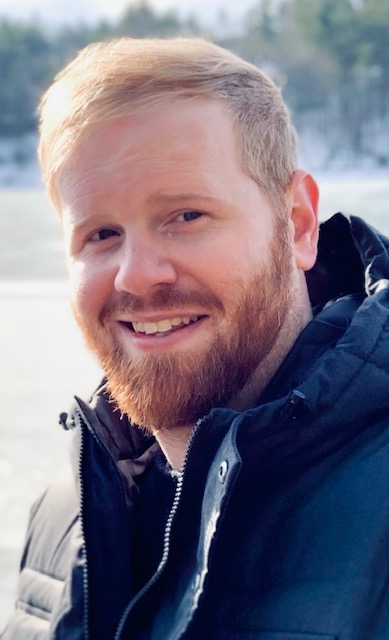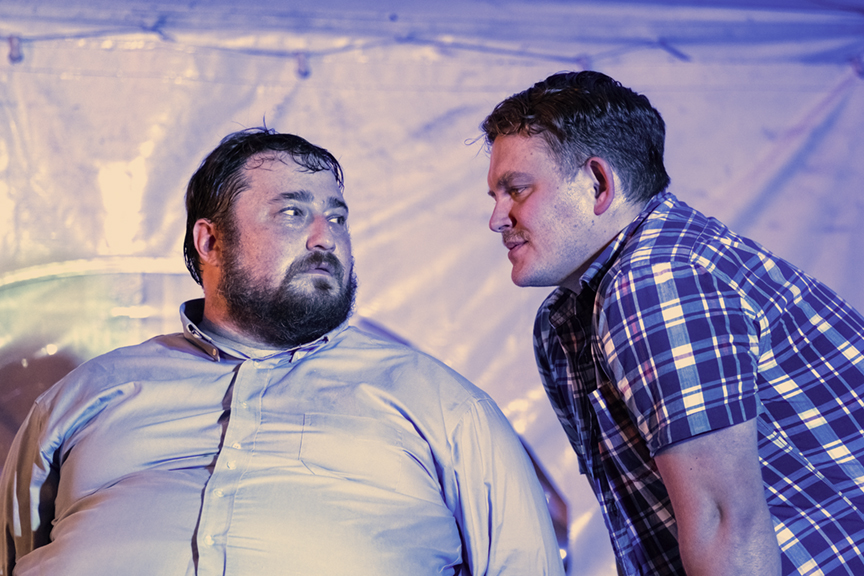
When theatres select scripts to produce each season, they tend to gravitate towards established writers or plays, especially because well-known plays attract bigger audiences. Taking a chance on a new play could mean less revenue for any theatre.
But allow me to pose a question: what if you feel as if theatre needs to radically change the way it views its programming?
If you’re Garret Milton, fourth year doctoral student in the School of Theatre & Dance, you write a play. Like the great playwrights before him who used theatre as an apparatus for change, Milton saw a problem in the theatre world and decided to write a critique with his play The Playwright & the Producer.
Milton started this project over two years ago when he began to question how theatre was being curated. He discovered much of theatre programming focused on already established works. Instead of looking at what was innovative and interesting as theatre-makers, too many of the season selection committees were focusing on plays that had already received a “stamp of approval.”
To draw attention to this problem, Milton wrote a dark comedy about a desperate playwright who kidnaps a successful theatre producer and forces him to workshop a new play. However, the play in question quickly becomes the play unraveling before audiences. What begins as a maniacal playwriting workshop becomes a meta-theatrical experience where both characters must work together to complete the play in which they find themselves playing a role.
As the play started to develop, Milton shared his idea with fellow doctoral student and friend Cory Lawson. Lawson told a director in Amsterdam, Emmy-nominated Titus Tiel Groenestege, about the play and Groenestege expressed interest in reading the script, after which he invited Milton to Amsterdam to workshop the play with his team at the Theatre Orkater.
Over the course of three weeks in Amsterdam, Milton and Lawson, who became intimately involved in helping to shape the character of The Producer, worked with Groenestege and the actors each day. Then, every night, Milton would go back to Groenestege’s home and frantically re-write. By the end of his time there, he had a solid draft.
Groenestege and Milton had also developed a plan for when and where to produce the play. Groenestege had a few connections in Amsterdam where he wanted to stage the play, while Milton was looking into Fringe festivals in the United States. The production had already been accepted to festivals in Indianapolis, San Francisco, and St. Louis.
And then, COVID.
Instead of producing it in Amsterdam with Groenestege’s connections in the summer of 2020 as planned, they had to wait. Finally, in 2021 they had the opportunity to take it to the St. Louis Fringe Festival. Unfortunately, Groenestege wasn’t allowed to travel to the US due to COVID restrictions, so he had to direct the production via Zoom, an extraordinary challenge for the cast and crew. Thankfully, they were able to put the show together and perform it at the Festival with Lawson and Peter Waluk in the lead roles. The critics and audiences loved the experience, and Milton received positive feedback every night—perfect for a show in development.

The next step? More festivals, possibly Edinburgh Festival Fringe, possibly a theatre in Washington D.C., and most likely Amsterdam in summer 2022.
Reflecting upon the past two years and his experience trying to self-produce and his work with Groenestege, Milton describes his biggest takeaway: “learning how to be more precise with how I’m investing my energy and my time and learning how to find people who will reciprocate your ideas and dreams in a way that feels really lovely and fruitful.”
“Then,” Milton explains, “you can create something beautiful and find amazing discoveries that you might not have otherwise.”
Milton’s advice for self-producing playwrights? “If you want to do something, go do it. Don’t wait until someone else has to open the door for you.”
His own experience is a useful blueprint for others. Despite COVID, Zoom rehearsals, and a challenging play that questions everything about theatre, Milton has his play produced before audiences.
They say writing is a lonely activity, but for Milton writing The Playwright & the Producer was anything but. This play became an opportunity for him to engage with artists that he will continue to work with over his lifetime. It also gave him an opportunity to travel, try out devised theatre work, and self-produce his own work.
He wanted to do something, so he did it.
